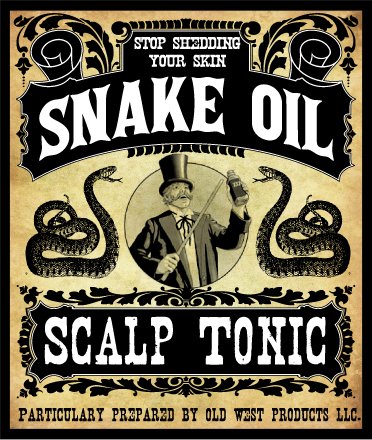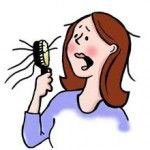It’s an unfortunate reality that the hair loss industry is one of the very worst when it comes to scams. The best way to avoid scams is to know exactly which products have been scientifically proven to work.
Become a more educated consumer.

When guys start to lose their hair, they often panic and throw money at products that promise them a full head of hair again. It goes without saying, but if you’re suffering from hair loss, you don’t want to fall victim to one of these scams.
Spotting scams
One of these easiest ways to spot a hair loss scam is when the seller offers a ridiculous explanation for what causes hair loss. While factors like diet and stress can play some role in hair loss for men, in the vast majority of cases, the primary culprit is the hormone dihydrotestosterone (DHT).
Anyone trying to sell you a product saying male pattern balding is caused by something else, such as blocked follicles or poor circulation, is almost certainly a scammer.
Online forums can be an excellent place to get bias-free information on hair loss treatments. If you’re not able to find any information about a particular treatment, you should ask about it in a hair loss forum.
The best way to avoid scam products
The best way to avoid scam products is very simple: Be aware of what treatments have been proven to work.
As far as hair loss medications are concerned, there are two products available on the market that have been scientifically tested and approved by the FDA. They are finasteride (Propecia) and minoxidil (Rogaine). These two treatments have been subject to thorough scientific trials and have been proven effective in slowing hair loss and regrowing hair, in the case of minoxidil.
Of course, their efficacy varies from one patient to the next, and they don’t work for everybody, but both finasteride and minoxidil have helped millions of men combat hair loss.
Types of products to avoid
- Laser combs – Laser combs are notorious in the hair loss industry, since they’re typically very expensive and have no real scientific proof as to their effectiveness. They should be avoided at all costs.
- Topical treatments without any clinically proven ingredients – Any topical treatment that claims to stop hair loss/regrow hair, whether it’s a shampoo, cream or gel, needs to contain at least one ingredient that’s been proven to stop hair loss. If not, it’s unlikely to help at all.
Grey area treatments
Of course, not every hair loss treatment that hasn’t been scientifically proven to work is necessarily a scam. Below are a couple of treatments that fall into this grey area.
- Herbal treatments – Herbal treatments such as saw palmetto do not have scientific evidence to prove their effectiveness. Therefore, there’s no way of knowing if they truly work. Opinion is split on the subject, but most people who get good results are usually taking proven treatments alongside herbal remedies.
- Thickening shampoos – There are shampoos that will thicken and increase the health of hair, but do not stop hair loss. These shampoos can sometimes be sold as hair loss treatments, which is quite disingenuous, as most of them do not inhibit DHT.
Hair Loss Scam FAQs

Where are hair loss scam products sold?
Hair loss scam products can be sold anywhere, but are most commonly found online and are often sold through purpose-built websites where feedback can be heavily controlled.
How will I know what treatments will work for me?
The truth is that there’s no guarantee that even the proven treatments will work 100% of the time. People respond differently, and some treatments are much more effective than others depending on the individual. The best way to know if a treatment will be effective for you is by trying it.
Are hair loss shampoos effective?
Some hair loss shampoos are effective; others are not. Generally the hair loss shampoos that are most effective contain the ingredient ketoconazole, which helps reduce inflammation in the scalp and allow for healthier hair growth.
What about herbal treatments?
Herbal treatments are generally ineffective when it comes to hair loss. There’s no scientific basis for herbal treatments working for hair loss, whether taken orally or applied topically.
Should I get a hair transplant immediately?
If you’ve only just started noticing your hair thinning, it’s better to try the available hair loss treatments first to see how much success you have with them. It might be the case that you’re able to get back any hair you’ve lost and keep it without the need for a hair transplant.



